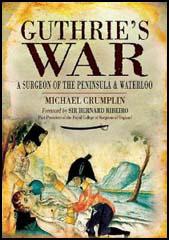Spartacus Review
Volume 52: 27th February, 2011
Military History

Title: The Battle of Quiberon Bay
Author: Nicholas Tracy
Editor:
Publisher: Pen & Sword
Price: £19.99
Bookshop: Amazon
Spartacus Website: History Websites
Category:
Revered naval theorist, Alfred Thayer Mahan, thought the Battle of Quiberon Bay (20 Nov 1759) was as significant as Nelson's victory in 1805, calling it 'the Trafalgar of this war [the Seven Years War]'. Arguably it was even more vital. Britain in 1759 was much less well-defended, with virtually no regular troops at home, and the threat of French invasion was both more realistic and more imminent. When the British fleet under Admiral Hawke fell upon them, the French ships of the line under Admiral Conflans were actually on their way to rendezvous with the invasion troopships gathered at the mouth of the Loire. Yet the battle and the admiral remain relatively obscure - there is no Quiberon Square or Hawke's column. The battle itself was fought in terrible weather, the French attempting to exploit their local knowledge by heading for Quiberon Bay, assuming the British would not follow them among its treacherous shoals in such conditions. Hawke, however, pursued them under full sail and the French ships were destroyed, captured, run aground or scattered for the loss of only two British ships which ran aground. The invasion was thwarted. Professor Nicholas Tracy studies the battle and its strategic consequences, particularly upon the war for North America.

Title: Guthrie's War
Author: Michael Crumplin
Editor:
Publisher: Pen & Sword
Price: £19.99
Bookshop: Amazon
Spartacus Website: History Websites
Category:
George James Guthrie is one of the unsung heroes of the Peninsular War and Waterloo, and of British military medicine. He was a guiding light in surgery. He was not only a soldier's surgeon and a hands-on doctor, he also set a precedent by keeping records and statistics of cases. While the innovations in the medical services of the French Republic and Empire have been publicized, a military surgeon of the calibre of Guthrie has been largely ignored by students of the period – until now. Michael Crumplin, in this comprehensive and graphic study of this remarkable doctor, follows him through his career in the field and recognizes his exceptional contribution to British military medicine and to Wellington's army.
